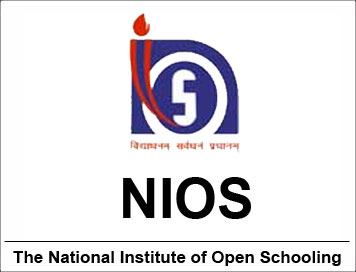(Download) NIOS Syllabus Of Psychology Senior Secondary
Disclaimer: This website is NOT associated with CBSE, for official website of CBSE visit - www.cbse.gov.in
(Download) NIOS Syllabus Of Psychology Senior Secondary
1. RATIONALE
Psychology is relevant to all walks of life. Everyone learns some psychology, if not in school, through one’s own experience and uses it without realizing it consciously. Prominent applications in psychology include areas of human development and adjustment, development of skills, communication, education, social change, stress etc. As mentioned earlier, psychology extends to all areas of human existence.
While imparting knowledge of the above to a student of Senior Secondary, it is our endeavor to acquaint him/her with his/her own life concerns and bring home on how psychology has bearing in such issues. It will also be important that while discussing modern psychological thought and research, the indigenous ideas are integrated into a collective perspective.
2. OBJECTIVES
-
To make students understand the major areas of life concern (e.g. development, education., work, hearth, society etc.)
-
To make students understand the relationship between the life concern and psychological perspective.
-
To make student apply the knowledge of psychology in the solution of problems related to individual life concerns.
-
To make students apply the knowledge to psychology for personal and social development.
3. DISTRIBUTION OF MARKS
| Module | Marks |
| Foundations of behaviour – I
Foundations of behaviour – II Human Development Personally Group Process Work & Stress |
18 18 18 18 18 10 |
| Total | 100 |
4. COURSE DESCROPTION:
4.1 FOUNDATIONS OF BEHAVIOUR – I
1) Psychology: an introduction.
2) Methods in Psychology
3) Biological Bases of behaviour
4) Sensory Processes
5) Perception and attention
4.2 FOUNDATION OF BEHAVIOUR – II
(1) Learning
(2) Memory and Forgetting
(3) Thinking
(4) Individual differences
(5) Motivation
(6) Emotion
4.3 HUMAN DEVELOPMENT
1. Nature of Development.
2. Stages of Development.
3. Factors of Development
4. Adolescence
5. Adulthood to Personality
4.4 PERSONALITY
(1) Nature of Personality
(2) Approaches to Personality
(3) Adjustment
(4) Self-control and Moral Development
(5) Strategies for Personality Development
4.5GROUP PROCESSES
(1) Group: its nature
(2) Social influence
(3) Leadership
(4) Intergroup Conflicts
OPTIONAL MODULE
4.6 A. WORK
(1) Education and Work
(2) Vocational choice
(3) Career Development
(4) Work in Organizations
(5) Vocational Adjustment
4.6 B. STRESS
(1) Stress processes
(2) Stress and health problems
(3) Stress management
(4) Promoting Well-being.
4.6 C. STREES
(1) Development Patterns in Early Childhood.
(2) Play Centre – Organization
(3) Play Centre – Structural Details
(4) Planning and Conducting Programmes
(5) Involvement of Parents and Communi
Click Here To Download Syllabus
<< Go Back To Main Page
